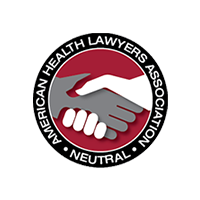New York Hospitals, clinics and practices and the doctors, nurses and support personnel they employ, can find that the environment in which they operate changes quickly. Under an amendment to the New York Public Health Law enacted this week, starting in April of 2016, NY hospitals will be required to allow patients over the age of 18 to select a “caregiver” following entry into a hospital and prior to discharge or transfer to another facility. The caregiver” can be anyone who has a significant relationship with the patient, such as a relative, partner, friend or neighbor. See NY Public Health Law 2994hh et seq.
New York Hospitals, clinics and practices and the doctors, nurses and support personnel they employ, can find that the environment in which they operate changes quickly. Under an amendment to the New York Public Health Law enacted this week, starting in April of 2016, NY hospitals will be required to allow patients over the age of 18 to select a “caregiver” following entry into a hospital and prior to discharge or transfer to another facility. The caregiver” can be anyone who has a significant relationship with the patient, such as a relative, partner, friend or neighbor. See NY Public Health Law 2994hh et seq.
The caregiver must be permitted to participate in the patient’s discharge planning, to share in post-discharge care information or instructions and receive notice of the patient’s discharge or transfer to another hospital or facility. If consent is given by the patient, the caregivers can also access the patient’s medical records .
This new law is intended to facilitate a caregiver’s provision of aftercare to the patient in the patient’s residence (not in a nursing home or other facility). Toward this end, the hospital is required to consult with the caregiver not later than 24 hours prior to a patient’s discharge, to offer the caregiver instruction in after-care tasks described in the discharge plan, including a live or recorded demonstration of such tasks in a culturally competent manner, and to answer the caregiver’s and patient’s questions.
The caregiver is also entitled to notice of the patient’s discharge or transfer to another hospital or facility. This plan has to include (a) the name and contact information of the caregiver; (b) a description of all after-care tasks (such as assisting the patient with basic activities of daily living); and (c) contact information for health care services and support necessary to carry out the patient’s discharge plan.
Between now and April of next year, the New York Health Department is tasked with coming up with policies governing the details of what must be covered in discharge instructions.


